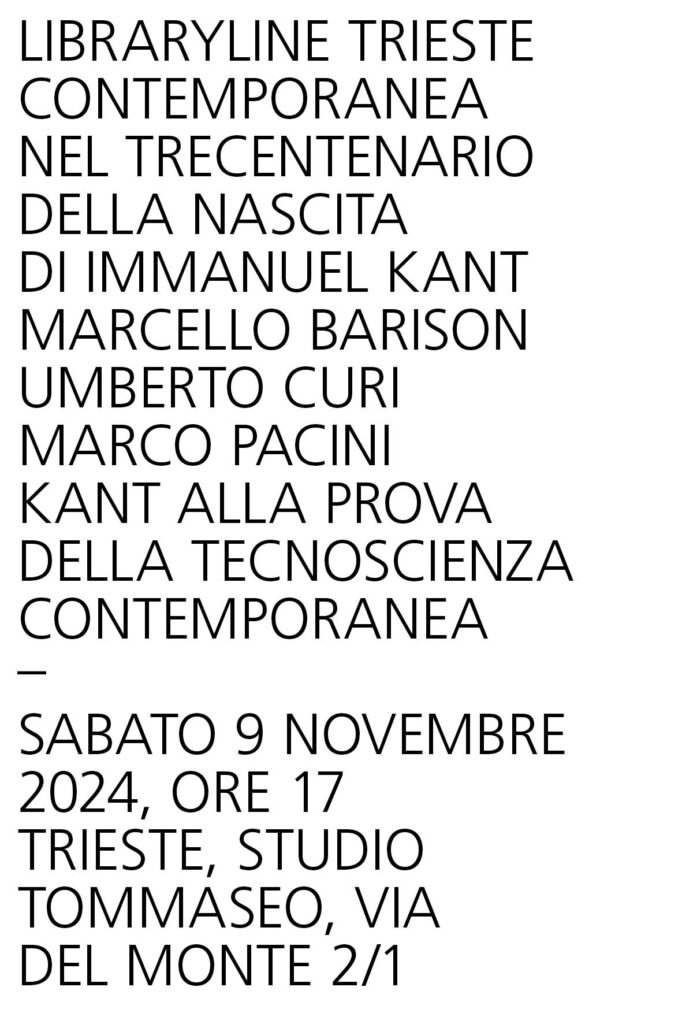libraryline
Kant to the Test of Contemporary Technoscience
at 5 pm

In the year of the 300th anniversary of Immanuel Kant’s birth, Trieste Contemporanea’s libraryline pays a tribute to the great German philosopher with a conversation by Umberto Curi, Marcello Barison and Marco Pacini discussing the topic “Kant to the Test of Contemporary Technoscience” on Saturday 9 November at 17.00 at Studio Tommaseo.
Marco Pacini—editor of the philosophical journal Aut Aut and founder of the Vicino/Lontano Festival and the Terzani Prize—opens with a provocative question to spark reflection. In his talk The Entropy of Truth, he asks whether we still need Truth at all. He frames this inquiry against the backdrop of a well-established twentieth-century philosophical tradition, one that, often wielding the metaphorical “hammer” favored by Nietzsche, made it a critical project to dismantle Truth in its absolute, capitalized form.
The question addressed in the second talk by philosopher Umberto Curi, professor emeritus at the University of Padua, will be the pivot for the discussion: to see how the relationship between technique and politics stands today. Curi will refer to Plato’s Protagoras in Prometheus Bound by Aeschylus and the thought elaborated by Kant in What is Enlightenment? and For Perpetual Peace.
Finally, Marcello Barison, professor of aesthetics at the Free University of Bozen/Bolzano, in his talk What does it mean to think? Kant at the Test of Artificial Intelligence, will ask whether there is or can be an I-Thinking, a ‘thinking subject’ of AI. Moving from the Critique of Pure Reason, Barison addresses the relationship between the framework of Kantian theory of knowledge and current telematic technologies, and in particular will show how the relationship between knowledge and computation entertains a problematic relationship with the indeterministic framework of twentieth-century science.
The event is organized by Trieste Contemporanea for the libraryline conversation series with the support of the Autonomous Region of Friuli Venezia Giulia (and under the brand name ‘I am Friuli Venezia Giulia’) and in collaboration with the Seminario Vescovile Library of Trieste and the association L’Officina of Trieste.
